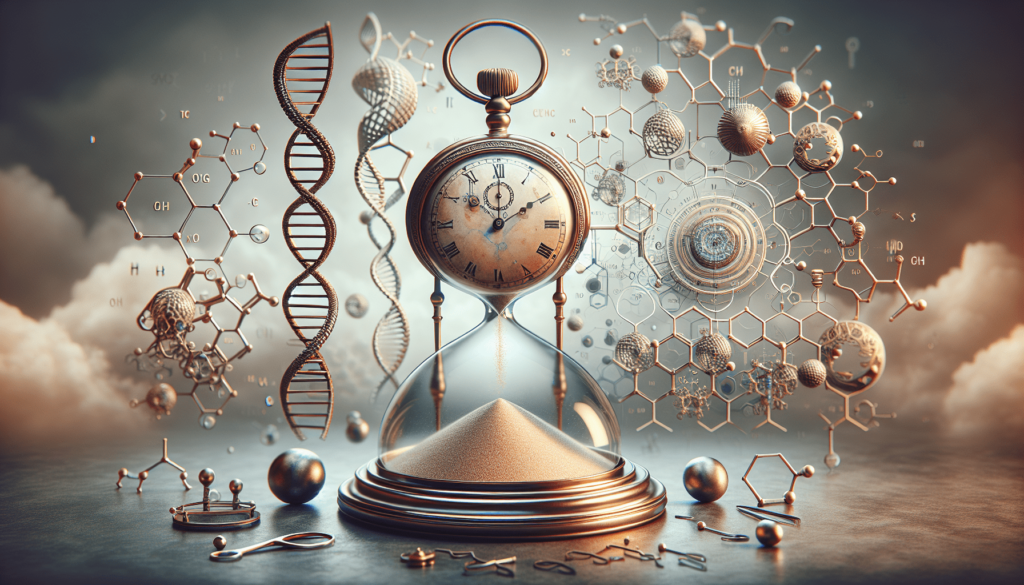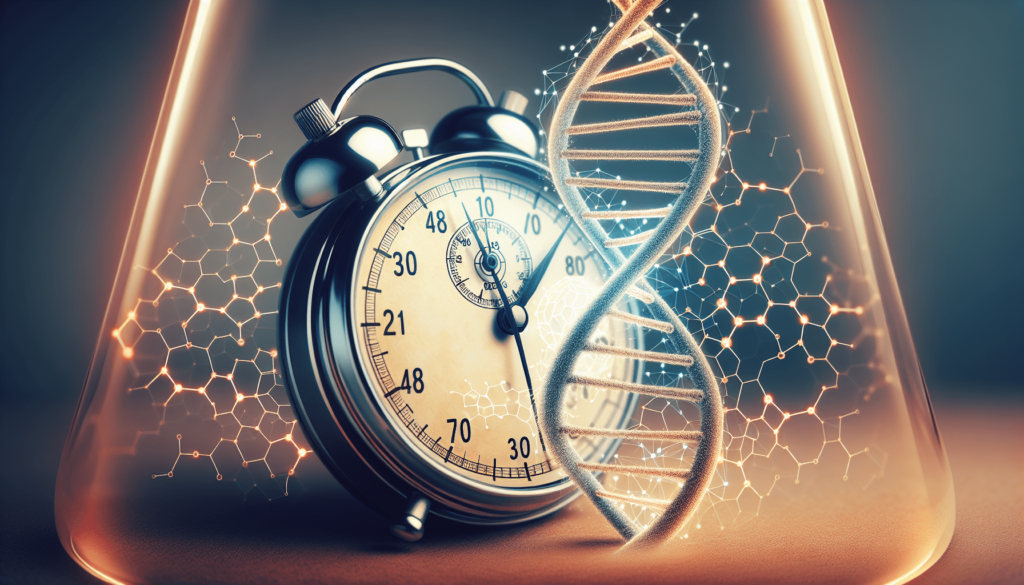Have you ever wondered how substances move around and leave your body? It’s a fascinating topic, especially when considering hormones like Human Growth Hormone (HGH). This substance, naturally produced in your body, plays an incredibly influential role. It’s not just about growth and development; HGH aligns with your health and well-being in surprising ways. But today, let’s look at how long HGH can linger in your system and what that means for you.
Understanding Human Growth Hormone (HGH)
HGH, a naturally occurring hormone in your pituitary gland, is essential for growth, cell repair, and metabolism. As you age, your body’s production of HGH begins to wane. This decline might be why you’re feeling less energetic and noticing other signs of aging. By understanding HGH, you can better appreciate why it might have a significant influence on your life.
The Functions of HGH in Your Body
Table of Contents
HGH is not just about helping you grow tall; it plays a pivotal role in your overall health. It helps regulate body composition, body fluids, muscle and bone growth, sugar and fat metabolism, and possibly even heart function. From helping you recover from exercise to supporting your sleep patterns, HGH is involved in a multitude of processes that keep you vibrant and active.
What Happens When HGH Levels Decline
When your HGH levels drop, you may notice a few changes. These can include increased body fat, reduced muscle mass, and a general feeling of low energy. You might find it harder to maintain the stamina you once had, and even recovery from minor injuries can be slower. Understanding these effects can help you make more informed decisions about your health and wellness.
The Benefits of HGH Beyond Growth
Beyond its primary functions, HGH has garnered attention for its potential in reversing some signs of biological aging. Imagine turning back the clock on your cellular health—HGH might have a role in that remarkable process. Let’s explore the array of benefits associated with HGH.
Biological Age Reversal
Studies suggest that HGH can significantly impact biological age, potentially reversing signs by up to 20 years. It might sound like science fiction, but the evidence is intriguing. HGH has been shown to improve skin elasticity, increase energy levels, and improve muscle mass, which can collectively contribute to a more youthful appearance and vitality.
Enhancing Physical Performance
For athletes and those invested in fitness, HGH can be a game-changer. It helps in the regeneration of muscle tissue, allowing for quicker recovery post-exercise, and can improve exercise capacity. If you enjoy pushing your limits, HGH might help you get more out of each workout.
Improving Overall Health and Longevity
HGH doesn’t only stop at aesthetic enhancements. It’s also linked with improving your overall health. Better mood, improved cognitive function, and even enhanced heart health are associated with adequate HGH levels. By understanding these benefits, you can appreciate the hormone’s potential to improve both quantity and quality of life.

How HGH Supplements Work
HGH supplements are not a magic potion, but they do have a role when your natural production falls short. Understanding how these supplements work can be crucial before deciding if they are right for you.
Types of HGH Supplements
There are different forms of HGH supplements: injections, oral sprays, and synthetic HGH releasers. Each type works differently with your body. Injections are the most direct form, delivering synthetic HGH straight into your bloodstream. Oral sprays, meanwhile, aim to induce your pituitary gland to produce more HGH. Synthetic releasers boost your body’s natural hormone production. Each option comes with its own set of considerations.
| Type of Supplement | Method | Considerations |
|---|---|---|
| HGH Injections | Direct hormone injection | Effective but high cost and potential side effects |
| Oral Sprays | Stimulate natural hormone production | Variable effectiveness depending on formula |
| Synthetic HGH Releasers | Support body’s hormone production | Generally safer, often contain natural ingredients |
Safety and Efficacy
While HGH supplements can indeed provide substantial benefits, it’s vital to consider safety and efficacy. Not all supplements are created equal, and some might carry adverse side effects. Always consult a healthcare professional before starting any HGH supplementation regimen to ensure it aligns safely with your health needs.
How Long Can HGH Be Detected in Your System?
Given its benefits, you might be curious about the detection window of HGH in your body. This is particularly relevant for athletes or those concerned with legal and regulatory implications. Let’s dissect the timelines and factors influencing HGH detection.
Detecting HGH: The Timeline
HGH is notoriously difficult to detect once it has entered a biological system. Generally, synthetic HGH can be detected for a short time, ranging from a couple of days up to a week, depending on several factors. This ambiguous timeline is due to the hormone’s rapid breakdown and the lack of long-term metabolites that would be easier to track.
Factors Influencing HGH Detection
Several factors influence how long HGH remains detectable in your system. These include:
- Dosage and Frequency: Higher doses and more frequent usage can extend the detection window.
- Method of Administration: Direct injections might be detectable for longer than oral supplements.
- Individual Metabolism: Everyone’s body is different; faster metabolic rates can shorten detection periods.
- Advanced Detection Methods: Newer detection techniques can identify HGH use more effectively, but timing is still crucial.
Implications for Athletes
For athletes, understanding the detection window is essential because of the stringent regulations and testing protocols in sports. In professional sports, leaving HGH undetectable can prevent potential bans or penalties. As detection methods become more sophisticated, staying informed about these changes is important for anyone in competitive sports.

The Science Behind HGH Detection
Understanding the science behind HGH detection can provide more clarity on why it’s so challenging. Let’s delve into the different methods used to detect HGH in the body.
Common Detection Methods
HGH detection primarily relies on blood tests, which can discern both natural and synthetic HGH. Two main types of tests are used:
Isoform Differential Immunoassay: This method distinguishes between the different forms of HGH during its fluctuations through your bloodstream.
Marker Approach: This test relies on secondary effects, such as changes in other hormonal levels, indicating HGH presence.
Both methods have strengths and limitations, mainly focusing on the short detection window due to HGH’s rapid bodily processing.
Advancements in Detection Techniques
The field of HGH detection is moving fast. As anti-doping agencies develop new testing methods and technologies, the ability to detect HGH use becomes more precise and reliable. For instance, markers previously undetectable in standard blood tests are now becoming integral to detection protocols.
Legal and Ethical Considerations
With HGH’s powerful effects, there are legal and ethical discussions surrounding its use. Understanding these aspects ensures you’re well-informed about the potential risks and responsibilities.
The Legal Landscape
HGH is classified as a controlled substance in many regions, restricting its use to specific medical conditions under a doctor’s supervision. Using HGH for non-approved purposes, such as athletic enhancement, can result in legal penalties. Staying informed about your region’s regulations is critical if you’re considering HGH supplementation.
Ethical Issues in HGH Use
Using HGH purely for anti-aging or enhancement goes beyond personal choice. It raises broader ethical issues, especially in competitive environments. The fairness in sporting competitions and the potential pressure on athletes to engage in prohibited practices serve as significant considerations. Engaging in dialogue about these topics can help shape an informed perspective on HGH use.
The Future of HGH and Its Detection
The conversation around HGH will likely evolve as new research sheds light on its capabilities and the methods to monitor its use. Staying informed will equip you with the knowledge needed to navigate these changes responsibly.
Potential Health Implications
New studies on HGH point to yet undiscovered benefits and drawbacks. As scientists understand the hormone’s mechanics better, new treatments and therapies may emerge, offering safer administration and broader benefits.
Innovations in Detection
As the demand for transparency and integrity grows, innovations in testing technology will enhance HGH detection reliability and accuracy. Anticipating these advancements, particularly in sports and healthcare, will be critical for anyone involved in HGH-related discussions.
Conclusion
In exploring the dynamic world of HGH, you can see how deeply it intertwines with your health, performance, and ethical considerations. Whether you’re looking at HGH as part of a potential treatment plan or simply wanting to understand how it might impact your body, the knowledge you’ve gained here empowers you to make informed decisions. As science progresses, maintaining a curious and open mind will serve you well in navigating the landscapes of health and wellness.





